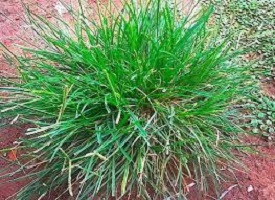Paragis Benefits for Fertility, Tea Recipes, and Uses
Paragis Benefits for Fertility, Tea Recipes, and Uses. Please Watch >>>
Paragis grass, scientifically known as Eleusine indica, is a type of grass that is commonly found in tropical regions. It has gained attention in some traditional medicine practices for its potential health benefits, including claims related to fertility.
However, it’s essential to note that much of the information surrounding the supposed fertility benefits of Paragis grass is based on anecdotal evidence and traditional beliefs.
There is limited scientific evidence to support the fertility claims associated with Paragis grass. While some studies suggest that it may have antioxidant and anti-inflammatory properties, more research is needed to establish its efficacy and safety for specific health purposes.
If you are experiencing fertility issues or are seeking ways to enhance fertility, it’s crucial to consult with a qualified healthcare professional. They can provide personalized advice based on your medical history, perform necessary tests, and recommend evidence-based interventions if needed.
It’s important to approach alternative remedies with caution and not solely rely on traditional or anecdotal information, especially when it comes to sensitive health issues like fertility. Always consult with healthcare professionals to ensure you are making informed and safe choices for your well-being.

Table of Contents
Paragis Benefits for Fertility
According to studies, paragis is a rich source of carotenoids, phenolics, flavonoids, vitamins C and E, and other phytochemicals.
Accordingly, paragis can support the development of healthy hormones and reproductive organs, both of which are critical for enhancing fertility.
What is paragis?
The Philippines are home to grass known as “paragis.” It is sometimes known as “napier grass” or “elephant grass.”
For paragis, the scientific name is Eleusine indica. It is also called grass root in India.
The weed grows especially profusely in hot regions, such as Asia and Africa.
Although some studies claim that varieties of it are grown in Europe, Australia, New Zealand, Mexico, South and Central America, and elsewhere,
Paragis is a tufted grass that grows high and is completely smooth; its leaves are also very long and narrow.
Its height can grow to be anywhere from 10 centimeters to one meter.
Considering it is a tough and durable plant, rope and paper are usually made from it.
Paragis has been utilized in traditional medicine for centuries.
It is claimed to have many benefits, such as acting as a natural diuretic and detoxifier.
Because of its purported ability to increase fertility, paragis has earned the nickname “miracle grass.”
Nutritional benefits of paragis
Vitamins and minerals that are vital for conception and pregnancy are abundant in paragis.
Some of these include:
- Vitamin C,
- Vitamins E and K
- Iron
- Folic acid
The abundance of flavonoids and other ingredients in paragis gives the grass a protective antioxidant effect.
How to drink paragis grass?
There are numerous ways to eat paragis. They include:
- Paragis capsule
- Paragis tea
How to take paragis capsule
Paragis grass can also be consumed as a capsule, which you can purchase at your neighborhood pharmacy or from well-known internet retailers where you can place an order and have it delivered.
You can follow herbal experts’ instructions or take two Paragis capsules daily.
How to make Paragis tea
You can use dried or fresh Paragis grass to prepare tea.
Here are the items you’ll need to make a Paragis grass tea that will increase fertility.
- Paragis grass;
- two to four cloves;
- ginger
To prepare Paragis tea to increase fertility, do the following:
- Collect new Paragis grass.
- To get rid of any dirt or debris, make sure you give it a thorough wash.
- Grind the ginger.
- Use sharp knives or scissors to snip the Paragis grass into manageable bits.
- Bring the water to a boil.
- Add the Paragis grass, ginger, and clove, and steep for five to ten minutes.
- To get rid of any solid particles, strain the tea through cheesecloth or a fine-mesh strainer.
- Depending on your taste, serve the tea hot or cold.
Note: To enhance the flavor of their tea, some people like to add honey or lemon.
It is crucial to remember that paragis tea is still based on conjecture and assertions made by specialists in herbal medicine and has not been scientifically shown to have any health advantages.
As such, before utilizing it for any therapeutic purposes, it is crucial to speak with a healthcare provider.
How does Paragis work?
No scientific data exists to support the idea that paragis can increase fertility.
Nonetheless, some individuals think that grass functions by aiding in the body’s detoxification and elimination of pollutants.
Additionally, it is believed to enhance blood flow and facilitate the body’s absorption of vitamins and nutrients from meals.
Who can take paragis?
It is thought that most people are immune to paragis.
For women who are nursing or pregnant, it is not recommended. Before using paragis, speak with a nutritionist if you have any concerns.
Take two capsules daily, ideally with meals.
Paragis grass testimonials ~ paragis grass benefits
Numerous individuals have attested to the remarkable and potent healing properties of this grass for both mild and serious ailments.
We’ll show you what everyone’s talking about with paragis grass later.
Paragis grass benefits and side effects
Many secondary metabolites found in paragis shield the body from invasive infections and autoimmune illnesses.
In the section that follows, a few of the health advantages of drinking goose grass tea will be covered in more detail.
What are the health benefits of paragis?
It enhances immunity: Paragis is not an exception to the rule when it comes to the benefits of herbal treatments for strengthening our bodies’ defenses against various illnesses.
The secondary metabolites and mineral components will strengthen your immune system.
Paragis is useful in the treatment of viral illnesses. Treating viral illnesses is one of the traditional uses for paragis, or goose grass.
According to several types of research, Eleusine indica may be utilized as a complementary treatment for para 3 and herpes viruses.
The bioactive substance orienthin may be responsible for these antiviral qualities.
It can be utilized to treat bacterial infections. Paragis grass is an effective herb against bacterial infections including Staphylococcus, Trollius, and Klebsiella, because it contains vitexin and orienthin.
It contains substances that reduce inflammation. The entire plant is used in traditional medicine to treat inflammatory conditions like skin edema and rheumatoid arthritis.
Additionally, it’s utilized to alleviate general body aches. The herb is used to cure a variety of fevers and has antipyretic qualities as well.
Paragis is good for the growth of hair. To get rid of dandruff, scalps are massaged with a mixture of finely chopped paragis grass stems and leaves and coconut oil.
Use a shampoo made of a mixture of paragis grass and coconut oil, and then gently massage your scalp to get rid of dandruff.
Dandruff would be eliminated, hair breakage and fall would be stopped, and hair growth would be enhanced.
Paragis can also be used to treat various diseases. Some of these include:
- Asthma
- Bladder disorders
- Cancer
- Diabetes
- Fever
- Hypertension
- Infertility in women
- Jaundice
- Kidney problems
- Liver problems
- Malaria
- Ovarian cyst.
- Parasitism
- Urinary tract infection
Benefits of Paragis grass for fertility ~ Paragis capsule for fertility
According to a reputable review published in 2022, consuming anti-inflammatory foods, supplements, or plants may:
- Increasing the likelihood of pregnancy
- Raise the success rates of IVF and other assisted reproductive techniques
- Enhance men’s sperm quality.
Lastly, because paragis extract has anti-inflammatory properties, using it as a supplement may indirectly increase fertility, particularly in women.
Paragis tea benefits
Paragis tea is a popular beverage among herbalists for treating fever, cough, flu, asthma, and colds.
Because goose grass is thought to be high in vitamin C, sailors have utilized it to treat scurvy in the past.
Paragis for menstruation
It’s also thought that paragis aids in the control of female and male reproductive hormones. In women, it controls the menstrual cycle.
Keeping an eye on the days of ovulation enhances the likelihood of becoming pregnant.
Paragis benefits for pregnancy
Regularly taking paragis can help couples who are attempting to conceive enhance their chances of becoming pregnant.
Antioxidants found in paragis can shield sperm and eggs from harm from free radicals.
This may increase the likelihood of successful fertilization and pregnancy.

Paragis side effects: what are the side effects of Paragis capsules?
Paragis is typically regarded as secure. Nevertheless, some individuals could encounter adverse consequences, such as:
- Getting bloated
- Upset stomach
- A diarrheal condition.
- Discomfort in the abdomen
It is recommended that you cease using Paragis if you encounter any of these adverse effects.
Paragis tea during pregnancy
Pregnant women shouldn’t consume paragis tea, capsules, or herbal extract because they may cause uterine contractions that could result in early delivery.
In a similar vein, there is a widely held belief in Malaysia that extract from paragis grass has a variety of medicinal uses, including accelerating the delivery of the placenta during childbirth and relieving vaginal bleeding discomfort.
In conclusion, there isn’t any scientific proof that paragis extract can harm a pregnant woman, but it’s nonetheless advised to avoid ingesting it because of its dubious safety.
Conclusion on Paragis Benefits for Fertility
Science does not support claims that Paragis can increase fertility in people.
Nonetheless, some individuals think that grass functions by aiding in the body’s detoxification and elimination of pollutants.
It is important to consult your physician first if you would like to try Paragis.
FAQs about Paragis Benefits for Fertility
Paragis Benefits for Fertility~ Does Paragis boost fertility?
Paragis enhances blood flow to the uterus and other reproductive organs. It is also an antioxidant that increases the odds of conception by shielding the sperm and egg from harm.
How do you make Paragis tea?
20 g of paragis grass was added to one liter of water during the preparation process, and the mixture was simmered for 15 minutes.
Once the mixture reached a boiling point, it was allowed to cool and then filtered, with the filtrate being placed into a sterile container.
What are the side effects of Paragis grass?
Paragis side effects include nausea, vomiting, headache, constipation, insomnia (inability to fall asleep), and itching.
What is paragis in English?
Eleusine indica is one of the acknowledged theories surrounding the scientific name of Paragis.
There have been other proposals as well. In English, it’s usually referred to as wire grass or goosegrass.
Does Paragis have caffeine?
Paragis Coffee Co. Coffee with folic acid and no caffeine for a healthy pregnancy, a 10-in-1 cup.
Is Paragis herbal tea FDA-approved?
LEXVIC ENTERPRISE Paragis (Goosegrass) Herbal Tea
The FDA is unable to guarantee the quality or safety of these unregistered food supplements and products since they haven’t gone through its evaluation procedure.
Customers may run the danger of developing health problems if they consume such offensive products.
What is a paragis supplement?
Paragis is used to cure a variety of illnesses naturally.
It is said that paragis contains silicon monoxide, calcium oxide, and chlorine chemicals in its leaves.
What is the scientific name of Paragis?
Goose grass, or paragis (Eleusine indica) grass, is a native of the tropics and is commonly found throughout the archipelago.
Haber and Semaan (2007) describe it as Indian goose grass.
Because of its purported medical benefits, this plant has gained popularity in the Philippines.
Can I take Paragis on an empty stomach?
The dosage and duration of Paragis D Tablet should follow the doctor’s advice when taken without food.
Your illness and the way you react to the medication will determine the dosage that is prescribed for you.
Your doctor’s recommendations for this medication’s use duration apply.
Paragis Benefits for Fertility ~ What are the properties of paragis?
Studies show that it can kill cells, stop seizures, kill bacteria, protect the kidneys, stop pancreatic lipase from working, be an antioxidant, fight parasites, lower blood sugar, clean up plants, and reduce inflammation.
What is the importance of Paragis?
The plant is used to treat hypertension, kidney issues, influenza, and other ailments.
For the plant to have any medical use, it must be boiled in its entirety.
Is Paragis grass edible?
Seeds and roots can be eaten. Raw roots and early seedlings can be consumed anyway.
What are the benefits of Paragis capsules with Guyabano?
- Increasing immune system;
- Aids in cancer-fighting;
- Eliminates toxins;
- Cleanses body
- Ten times more potent than chemotherapy,
- It aids in the fight against cancer, improves digestive health,
- Lowers the risk of diabetes,
- Prevents bone problems and treats respiratory disorders.
Is paragis good for hormonal imbalance?
Benefits of paragis for PCOS
This herb can balance hormones, increase fertility, and reduce inflammation, among its many other advantages for those with polycystic ovarian syndrome (PCOS).
How do you extract Paragis grass?
The paragis grass was gathered, cleaned, and roughly chopped.
For five days, the minced grasses were macerated in an ethanol-filled container.
An 80-degree Celsius makeshift water bath was used for extraction and filtering of the macerated grass.
What is the chemical composition of paragis?
The percentage of SiO is 16–47%, CaO (10–13%), and chlorine (6–7%) in leaf ash.
The dry matter content was found to be 35.8% and the crude protein content to be 12.4%. Flavonoids +++, tannins +++, alkaloids +++, cardiac glycosides +++, anthracene glycosides ++, and anthraquinones + were obtained from the methanol extract.
How much fiber is in Paragis grass?
With a digestibility value of 69.6 (Regmi et al., 2004), paragis grass can contribute between 21.57% and 29.17% of crude fiber (Garcia et al., 2003; Morah & Otuk, 2015; Suwignyo et al., 2017), and as much as 64%, as reported by Jackson et al. (1996).
What is the utilization of Paragis grass?
The outcome shows that bioplastic may be produced using the cellulose pulp from Paragis grass leaves.
This study will help mitigate the effects of plastic trash pollution on Earth’s water, air, and soil by reducing its amount.
What is the antibacterial property of Paragis grass?
Based on the findings, Eleusine indica (Paragis) flower and leaf extract can suppress the growth of Salmonella typhimurium.
Staphylococcus aureus and Escherichia coli because they contain important phytochemicals with known antibacterial properties.
Is there scientific evidence supporting the claim that Paragis grass enhances fertility?
Currently, there is limited scientific evidence supporting the claim that Paragis grass (Eleusine indica) directly enhances fertility. While some studies suggest potential antioxidant and anti-inflammatory properties, more research is needed to establish its efficacy for specific health purposes, including fertility.
Are there traditional beliefs or practices regarding Paragis grass and fertility?
Yes, Paragis grass has gained attention in some traditional medicine practices, where it is believed to have various health benefits, including those related to fertility. However, these beliefs are often based on anecdotal evidence and traditional knowledge rather than rigorous scientific research.
Can Paragis grass be used as a natural remedy for fertility issues?
While Paragis grass is sometimes promoted as a natural remedy for fertility issues, it’s essential to approach such claims with caution. Consult with a qualified healthcare professional for personalized advice, as relying solely on traditional or anecdotal information may not provide effective or safe solutions for fertility concerns.
Are there any risks or side effects associated with using Paragis grass for fertility?
The safety of using Paragis grass for fertility has not been thoroughly researched, and potential risks or side effects are not well-established. It’s crucial to consult with a healthcare professional before trying any alternative remedies to ensure your well-being and address fertility concerns appropriately.
What are some evidence-based approaches to enhance fertility?
Evidence-based approaches to enhance fertility often involve lifestyle modifications, such as maintaining a healthy weight, adopting a balanced diet, managing stress, and avoiding harmful substances. Medical interventions, such as fertility treatments, may also be recommended based on individual circumstances. Always seek guidance from healthcare professionals for evidence-based and personalized fertility advice.
Paragis Grass Tea Side Effects:
Making tea from paragis grass involves steeping the dried grass or its leaves in hot water.
While some people believe that paragis grass tea has various health benefits, it’s essential to be cautious because there is a lack of scientific evidence regarding its safety and efficacy.
Additionally, consuming plants that have not been thoroughly studied can pose risks, as they may contain compounds that could be harmful in certain quantities.
Possible side effects and considerations:
Allergic reactions: Some individuals may be allergic to paragis grass, leading to skin rashes, itching, or respiratory symptoms.
Contaminants: If the grass is harvested from contaminated areas or treated with pesticides, it may introduce harmful substances into the tea.
Interaction with medications:
If you are taking medications, there is a potential for interactions between the compounds in paragis grass and certain drugs.
It’s crucial to approach the use of paragis grass or any herbal remedy with caution. If you are considering using paragis grass for fertility or making tea from it, it is advisable to consult with a healthcare professional before doing so.
They can provide personalized advice based on your health status, potential risks, and existing medical conditions. Additionally, it’s important to rely on well-established and scientifically supported methods for addressing fertility concerns.
What is paragis grass tea?
Paragis grass tea is a beverage made by steeping the dried leaves or grass of the Eleusine indica plant in hot water. It is claimed by some to have various health benefits, although scientific evidence supporting these claims is limited.
What are the supposed health benefits of paragis grass tea?
Paragis grass tea is believed by some to have potential health benefits, including improved fertility, detoxification, and relief from certain health conditions.
However, it’s important to note that scientific research on these claims is lacking, and the safety and efficacy of paragis grass for these purposes are not well-established.
Can paragis grass tea improve fertility?
There is no conclusive scientific evidence supporting the idea that paragis grass tea can improve fertility.
While some traditional practices suggest its use for reproductive health, individuals seeking fertility-related solutions should consult with healthcare professionals for evidence-based advice.
Are there any side effects of drinking paragis grass tea?
The safety of paragis grass tea is not well-documented, and potential side effects are not clearly established.
However, there is a possibility of allergic reactions, contaminants, or interactions with medications. It is advisable to exercise caution and consult with a healthcare professional before consuming paragis grass tea.
How is paragis grass tea prepared?
Paragis grass tea is typically prepared by steeping dried paragis grass or leaves in hot water. The exact preparation method may vary, but it often involves boiling the grass for a certain duration and then letting it steep before consumption.
Where can one find paragis grass?
Paragis grass is considered a weed and can be found in various regions, particularly in tropical and subtropical climates. It may grow in open fields, lawns, and disturbed areas.
However, for medicinal use, it’s essential to ensure that the grass is harvested from clean and uncontaminated locations.
Is paragis grass tea supported by scientific research?
There is limited scientific research on the medicinal properties of paragis grass, including its use in tea. Most of the information is based on traditional and anecdotal evidence.
Before considering paragis grass tea for health purposes, it is recommended to rely on scientifically supported remedies and consult with healthcare professionals.
Can pregnant women drink paragis grass tea?
Pregnant women should exercise caution and consult with their healthcare providers before consuming paragis grass tea or any herbal remedies.
Limited information is available on the safety of paragis grass during pregnancy, and it’s essential to prioritize the health of both the mother and the unborn child.
Remember, before incorporating any herbal remedy, including paragis grass tea, into your routine, it’s crucial to seek guidance from healthcare professionals to ensure safety and suitability for your individual health circumstances.


